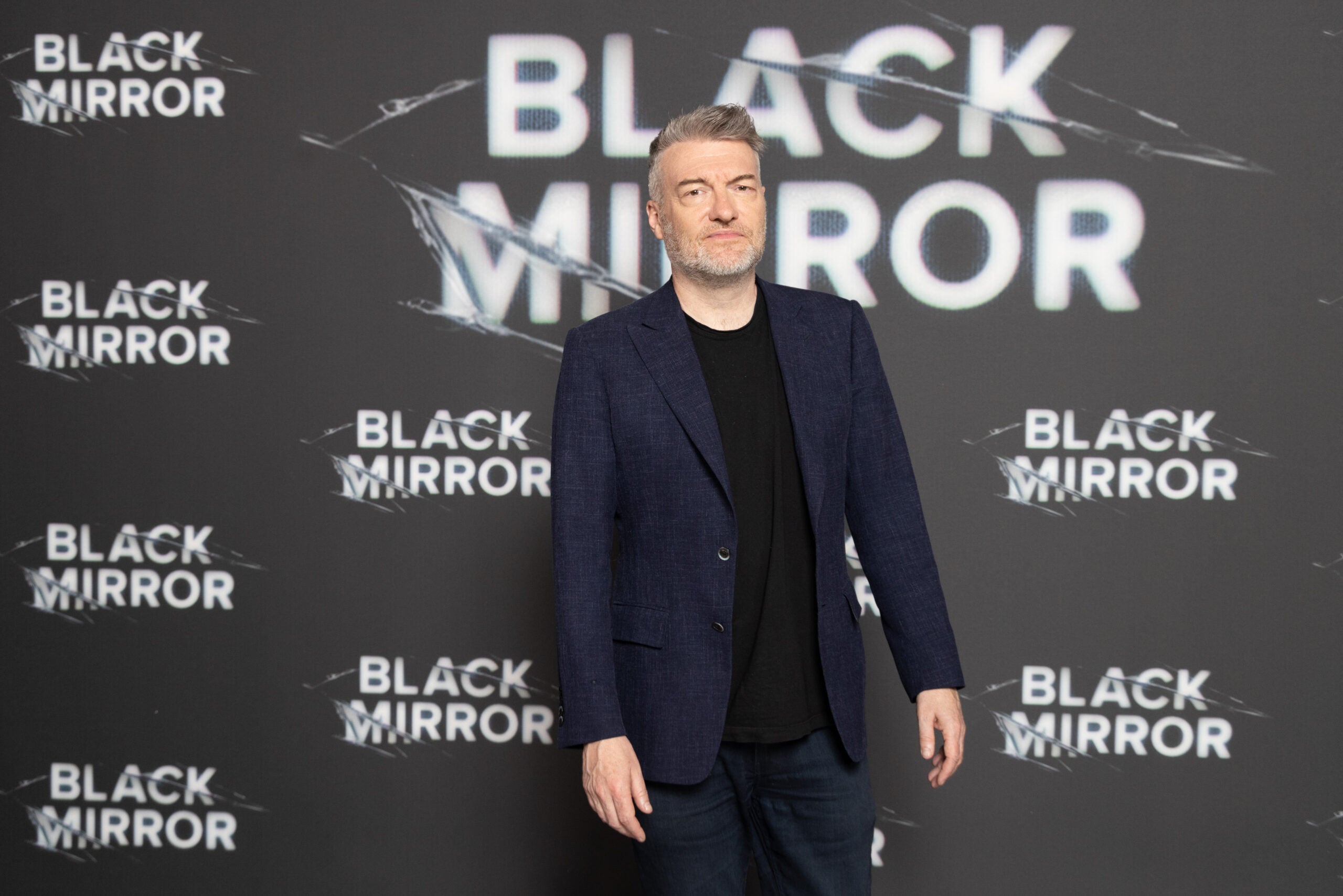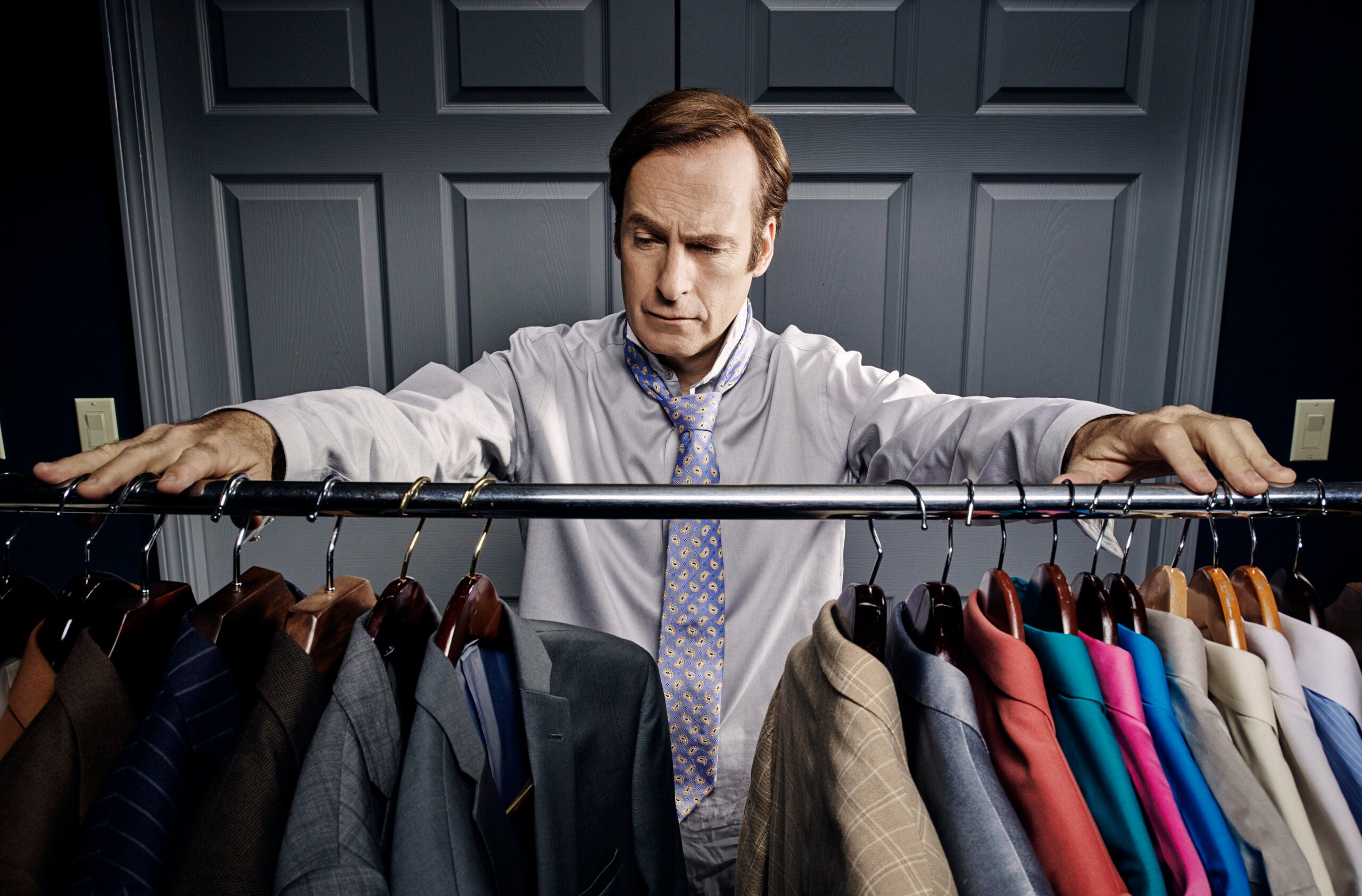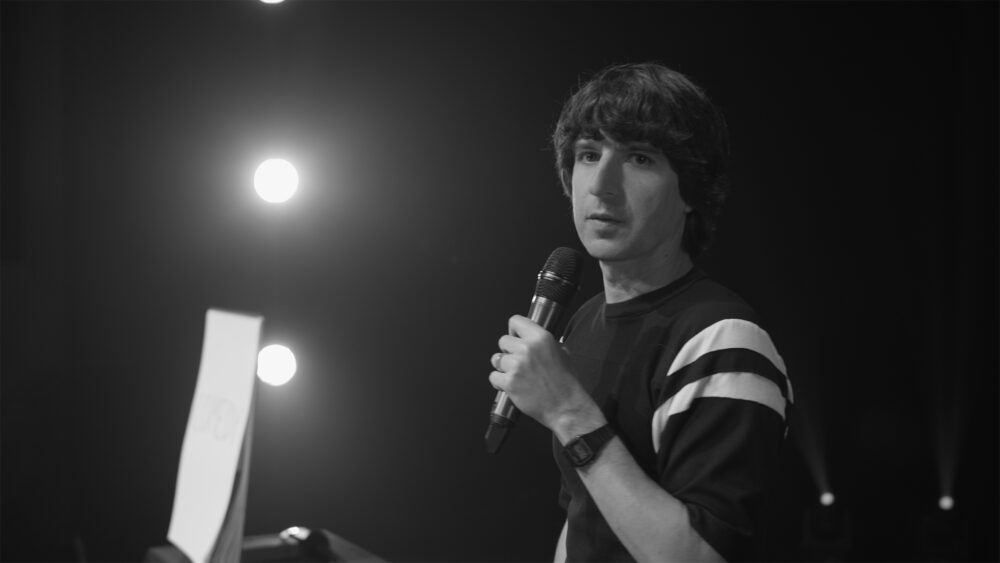Charlie Brooker is a man of many talents. His resume includes cartoonist, video game critic and columnist. But these days, he’s one of the most innovative and popular TV creators in the world.
One of his greatest accomplishments is the Netflix series, “Black Mirror.” Brooker is also the genius behind the “Philomena Cunk” character, featured in the new Netflix special, “Cunk On Life.”
Brooker recently spoke with WPR’s “BETA” host Doug Gordon, where he talked about Cunk’s deadpan naiveté and the similarities between “Black Mirror” and “The Twilight Zone.”
Stay informed on the latest news
Sign up for WPR’s email newsletter.
The following interview has been edited for clarity and brevity.
Charlie Brooker: I’ve been very, very, very lucky as a writer generally. I was a cartoonist, and then that led to me doing comic strips for a chain of shops in the UK. And then I sort of managed to segway from that into comedy writing. I’ve been very, very lucky throughout my career. Basically blind luck, actually.
Doug Gordon: It seems to me that the greatest influence on “Black Mirror” is Rod Serling’s “The Twilight Zone.” What do you think “Black Mirror” has in common with the “Twilight Zone,” and what sets it apart?
CB: One thing it’s got in common, I suppose is that it’s completely standalone. You can watch them in any order and you can watch one and then leave. You can watch all of them. Please do! Repeatedly, while pressing the new “double thumbs up” button they have on Netflix. And they are often parables or they are exploring the neuroses of the time in which they were conceived. What I always used to say was one of the big differences between “Black Mirror” and “The Twilight Zone” is in “The Twilight Zone” and they would sometimes use the supernatural and sometimes just the uncanny, like impossible things occurring. And in “Black Mirror” we tend to be using technology as magic.
I read a whole biography of Rod Serling, and I found it fascinating that there were things he wanted to be talking about: civil rights, politics, all sorts of things that were difficult to get on the air unless you presented them in a sort of metaphorical and fantastical way. “The Twilight Zone” tends to be somewhat more reassuring. I don’t think our show is too cynical, actually. But certainly compared to “The Twilight Zone,” sometimes it is. I mean, there’s maybe a little more faith in humankind in “The Twilight Zone.” So whether he would look at it and go, “This is too bleak.” I’d love to know!
DG: As if creating “Black Mirror” wasn’t enough, you’re also responsible for everybody’s favorite deadpan documentarian, Philomena Cunk. How did you go about creating the character and writing for her?
CB: So in the U.K., at the same time as I was starting to do the first couple of seasons of “Black Mirror,” I was co-writing and hosting a topical comedy show, kind of a little like “The Daily Show,” a little like John Oliver’s show, that sort of thing. And we had a character on there who was an idiot. He was actually played by the director of the show, a guy called Al Campbell. And the joke was that this guy was a moron and he’d say moronic things, but sometimes accidentally say something sort of moronically smart. Anyway, Al Campbell has a working class London accent. And sometimes we’d get criticism from people saying, “You’re mocking the working man,” which we weren’t. It was literally his natural speaking voice!
So I thought, you know what? Let’s get a posh character in as a counterpoint. And Diane Morgan was one of the people who auditioned for that role. And she she did it in a posh London accent. But then at the end she asked, “Can I do it in my natural Bolton accent?” So she did, and it was just one of the funniest things I think I’ve ever seen.
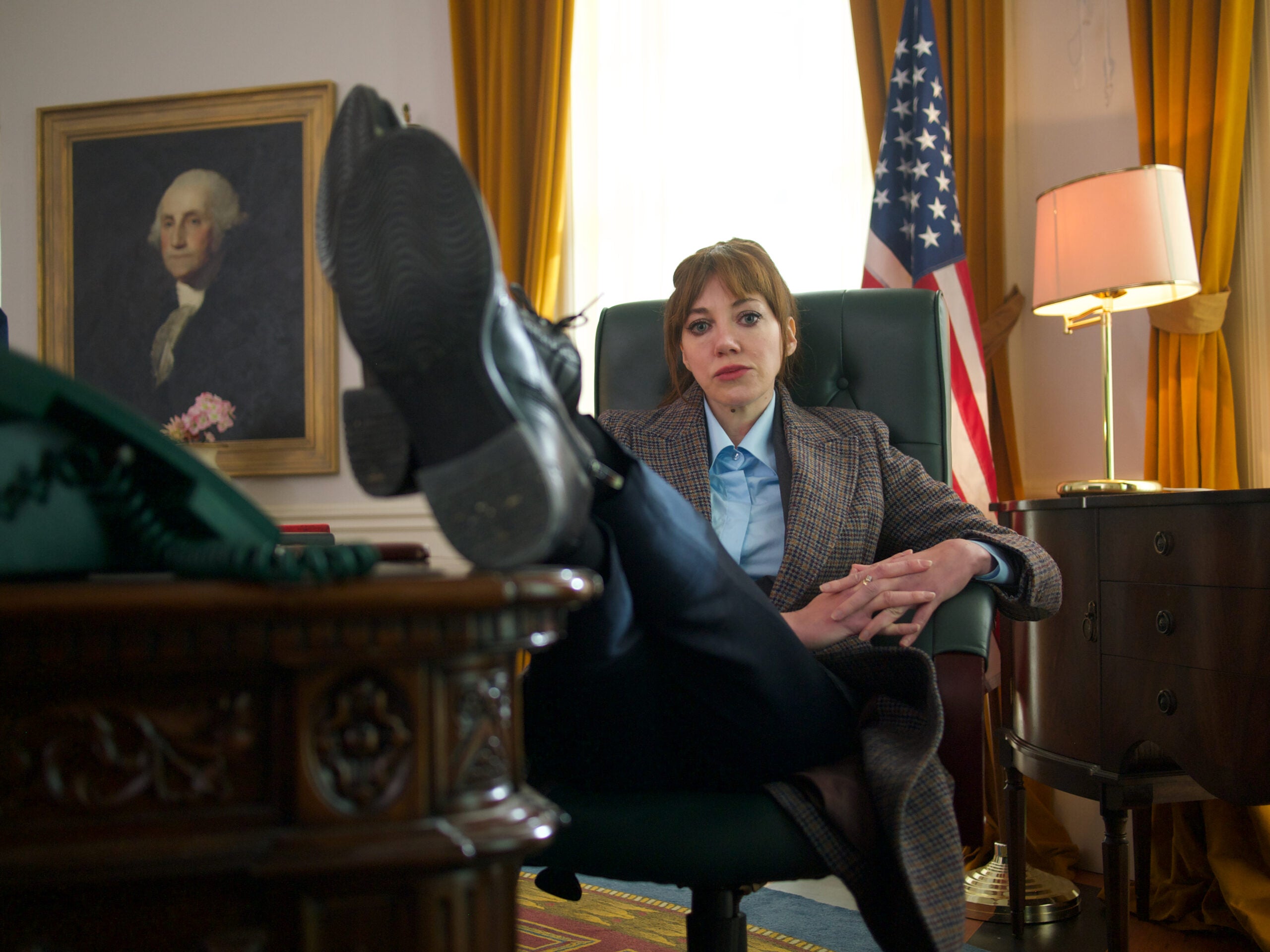
So then the character expanded from that. It started out, she was just there to sort of sum up stories of the week in a little sort of 90 second sketch once a week. And I was like, “Well, why don’t we send her out into the real world and get her to do little reports?” And as part of that, she can interview experts.
And I will say up top that the experts know that she’s a comedy character. I mean, with a name like that, she couldn’t not be! I love Ali G. And I love things like that. But we weren’t doing that. We weren’t doing a Borat. We weren’t hoodwinking people. We told them exactly what was going on, but we did ask them to treat her very seriously.
A thing that happens more these days is people are quite willing to dismiss an expert who might have studied the field their entire life. They kind of feel like, well, “I read something on social media or I watched a video on YouTube. And actually, this is what I think and this is what I choose to believe.” Which in real life is terrifying, but coming from the mouth of Philomena is funny.
DG: So the latest installment of Cunk is “Cunk On Life,” which is now airing on Netflix here in North America. How involved are you in casting the experts that Philomena talks to?
CB: There’s a producer and a team of researchers, and they draw up a wish list of the topics we want to cover. And then on Zoom, they’ll interview a couple of people. And then I’ll select them on the basis of, what’s a good mix of people? And you want them to be slightly scary and be able to play it straight. Or sometimes you can have ones who are smiling but also bewildered in the right way, if that makes sense.
By the way, I don’t tend to go along when the interviews are being recorded because I find it physically impossible. (LAUGHS) It can be so awkward! I’d either laugh and annoy people or I’d be squirming with embarrassment because Diane does not mind leaving an awkward silence after dropping a sort of bombshell of a dumb question. I hide like a coward (LAUGHS).
DG: Let’s shift gears and return back to “Black Mirror.” Let’s talk about an episode that originally aired in June of 2023, “Joan Is Awful.” Can you tell us about it without revealing too many spoilers?
CB: Sure. I’d been wanting to do an episode about deepfake AI assisted imagery, and I couldn’t work out what that story was. And then one day I was watching a drama called “The Dropout,” which is a real life. It’s adaptation of a real life story, the Theranos blood scandal involving Elizabeth Holmes. And I was watching it with my wife, and it was sort of weird, because you’re watching a reenactment of something that happened really recently. And I think at one point I sort of joked about, “You know, she’ll go home in a minute in this and switch the TV on and ‘The Dropout’ will be starting.”
And then I sort of thought, “what if there’s a story there?” And I can say without spoiling it because it happens in the first five minutes, is Annie Murphy plays an average woman called Joan, who has a sort of bad day at work and then goes home to discover that a streaming platform is inexplicably showing a brand new drama based on her life in which she is apparently portrayed by Salma Hayek. And it becomes a sort of comic, existential nightmare.
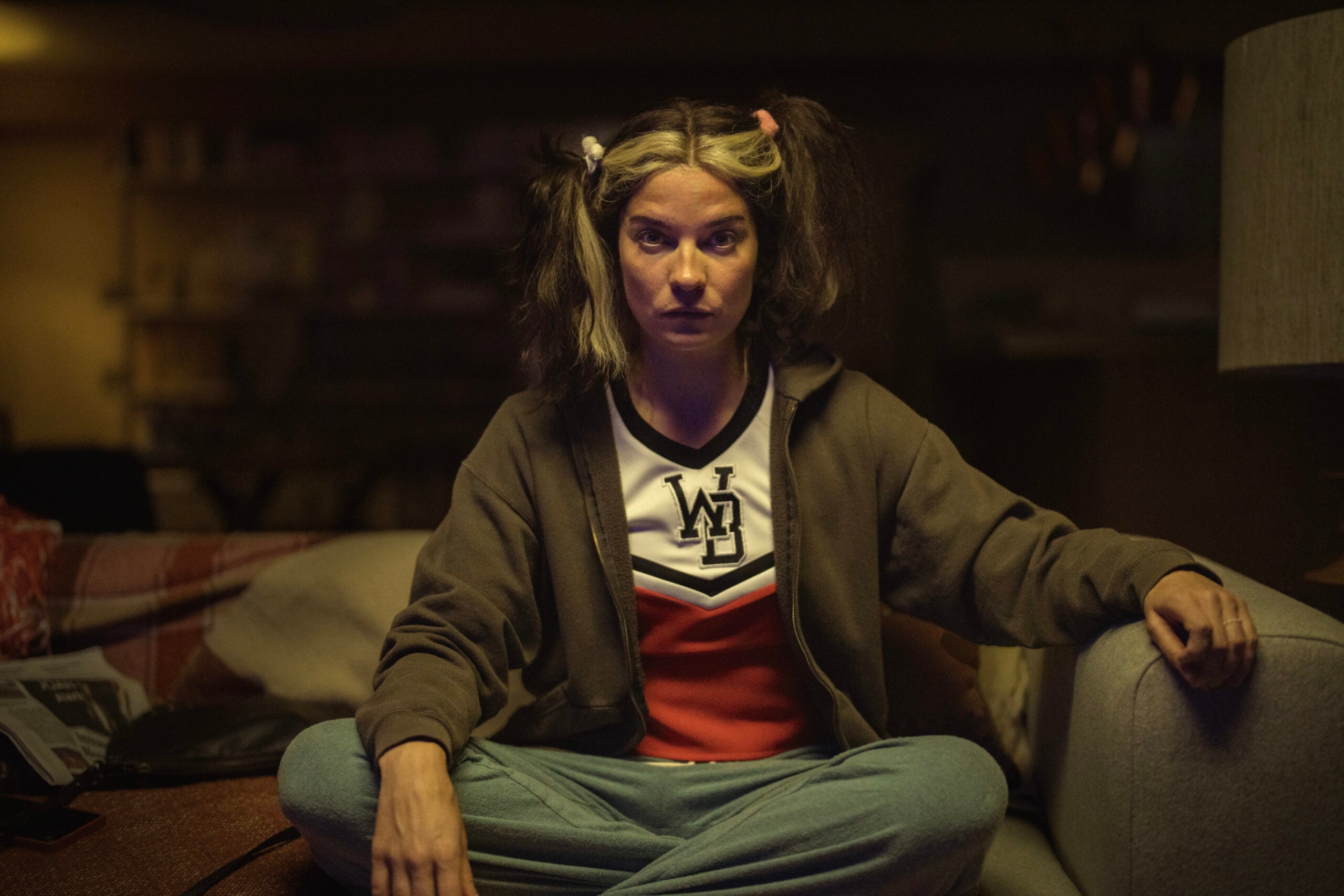
When it actually came out, it coincided with the writers strike and the actors strike. But people were striking over almost precisely this: the rights to your digital likeness, the use of AI in entertainment. So I was kind of relieved to have got that episode out there in time for that to hit. And also, like any other creative, nervous about what the future holds in terms of how AI will impact on us.
DG: There’s going to be a season seven of “Black Mirror” coming to Netflix, also known. What can you tell us about it?
CB: Not much! What can I say? There is a real mix of styles. There are quite a lot of emotional episodes. We’ve got a sequel for the first time. We did an episode called USS Callister, which is very heavily influenced by “The Twilight Zone.”
DG: No Jesse Plemons in the sequel, right?
CB Well, Jesse Plemons, his character is dead, unfortunately. So not to spoil the first one! Yeah, he dies at the end of the first one, so he’s gone, but they’ve got to sort of press on. It’s a nearly feature length extravaganza. And we’ve got another feature length episode elsewhere in the series. And like I say, quite a lot of emotion. You know, I just hope, as ever, I hope people like it.
DG: How can people not like it?
CB: Let’s face it, there are so many shows you could be watching these days. There’s like a billion shows, aren’t there? It’s terrifying!
DG: There are, but “Black Mirror” is at the top of the heap.
CB: I hope so!
DG: Well, we know so!
CB Okay, we know so! You’re right, I’m being too British about this!
